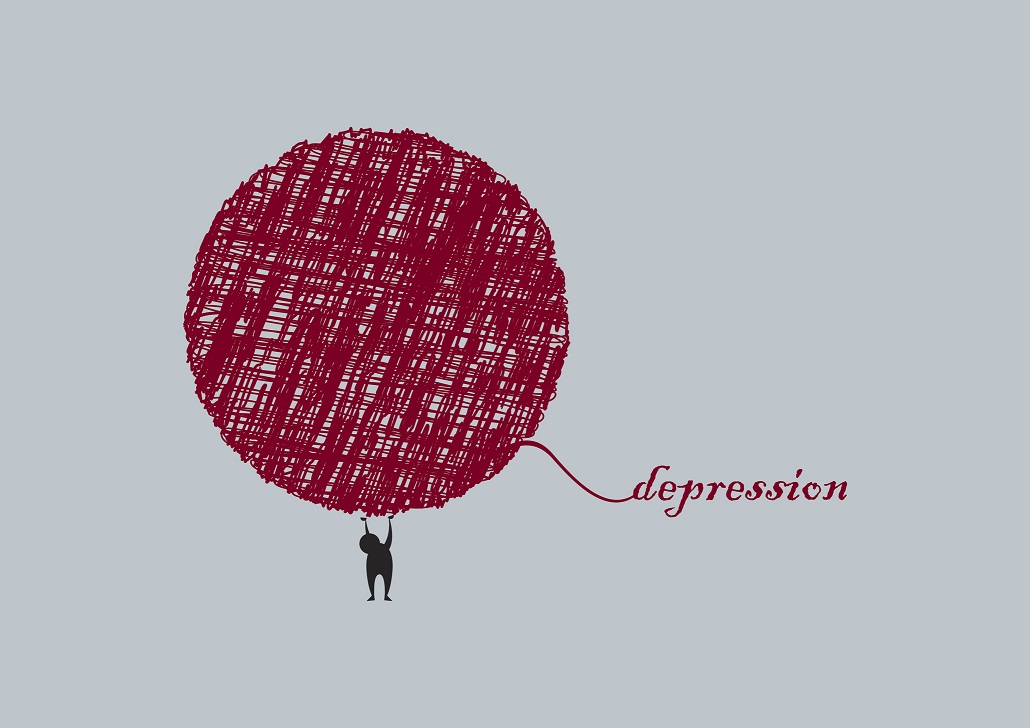Understanding Depression

Depression is one of the most common mental health problems in the world. Research suggests around 350 million people worldwide currently have depression. This may be anything from a brief episode of mild low mood to developing chronic depression or bipolar.
One of the questions I have been asked time and time again by clients is why has this happened to me? Unfortunately, most of the time you do not actually become aware of depression until it has taken hold of you and a family member or loved one notices that you are no longer your usual self.
Historically Churchill famously referred to his bouts of depression as the “black dog”. I find this metaphor sums up depression perfectly as when you’re in the thick of depression it can seem like this enormous dark, heavyweight has landed on you. The weight can seem all-consuming when you try to battle against it however in time and with the appropriate therapeutic intervention the weight of the black dog will begin to lighten and reduce.
One of the biggest common misconceptions around depression is gender differences, there is a belief that men and women both experience different symptoms of depression. There are no gender-specific criteria for depression, however, there is an endless list of symptoms which may be experienced during a depressive episode. The most common symptoms of depression can include:
- Low mood, often can be described as feeling down, flat or empty by clients
- Becoming easily upset or emotional
- Loss of interest in pleasurable activities
- Fluctuation in appetite
- Sleep problems
- Increased anger or irritability
- Withdrawal from social situations
- Negative Automatic Thoughts, such as “I’m useless”, “What’s the point”, “I’m a burden”
- Increase of self-neglect, such as not attending to personal care, staying in pyjamas all day, non-compliance with medications
- Lack of motivation, this can include finding the strength to get out of bed each morning, reduction in completing routine activities
- Concentration difficulties
As I said this is not an exhaustive list of symptoms and each person’s depression is individual, symptoms will differ however the overall feeling low mood is universal within the realms of depression.
The use of anti-depressant medication is an issue which always divides opinion. A common belief among patient’s and some health professionals is that anti-depressant medication is given to patients far too easily and patients are not given sufficient psycho-education on the medication itself, how the medication works and potential side effects. All too often patients have explained to me how GP’s have prescribed anti-depressant medication without taking into consideration the patient’s wishes and their attitudes to medication. It is vital the wishes and views of patients are respected and explored in further discussion if necessary. It is important to remember that all medications should only be prescribed by the patient’s GP and reviewed by GP on a regular basis to ensure the medication is working well for the patients. The strength may need to be increased or decreased to match the patient’s physiology or mental stability.
Over the last decade, counselling and other talking therapies have become a popular option for people who are experiencing depression. Attitudes have slowly begun to change however unfortunately there is still a stigma around accessing therapy. When I begin working with clients I acknowledge how much of a big step it is to seek help in order to work through issues and problems which are affecting the client’s life and wellbeing.
Therapy can be life changing if you allow it. For therapy to be effective and beneficial the client needs remain open-minded, actually feel ready to break old patterns of thought and behaviour, confront those demons and learn how to move forward into the future in the best way possible for each person.